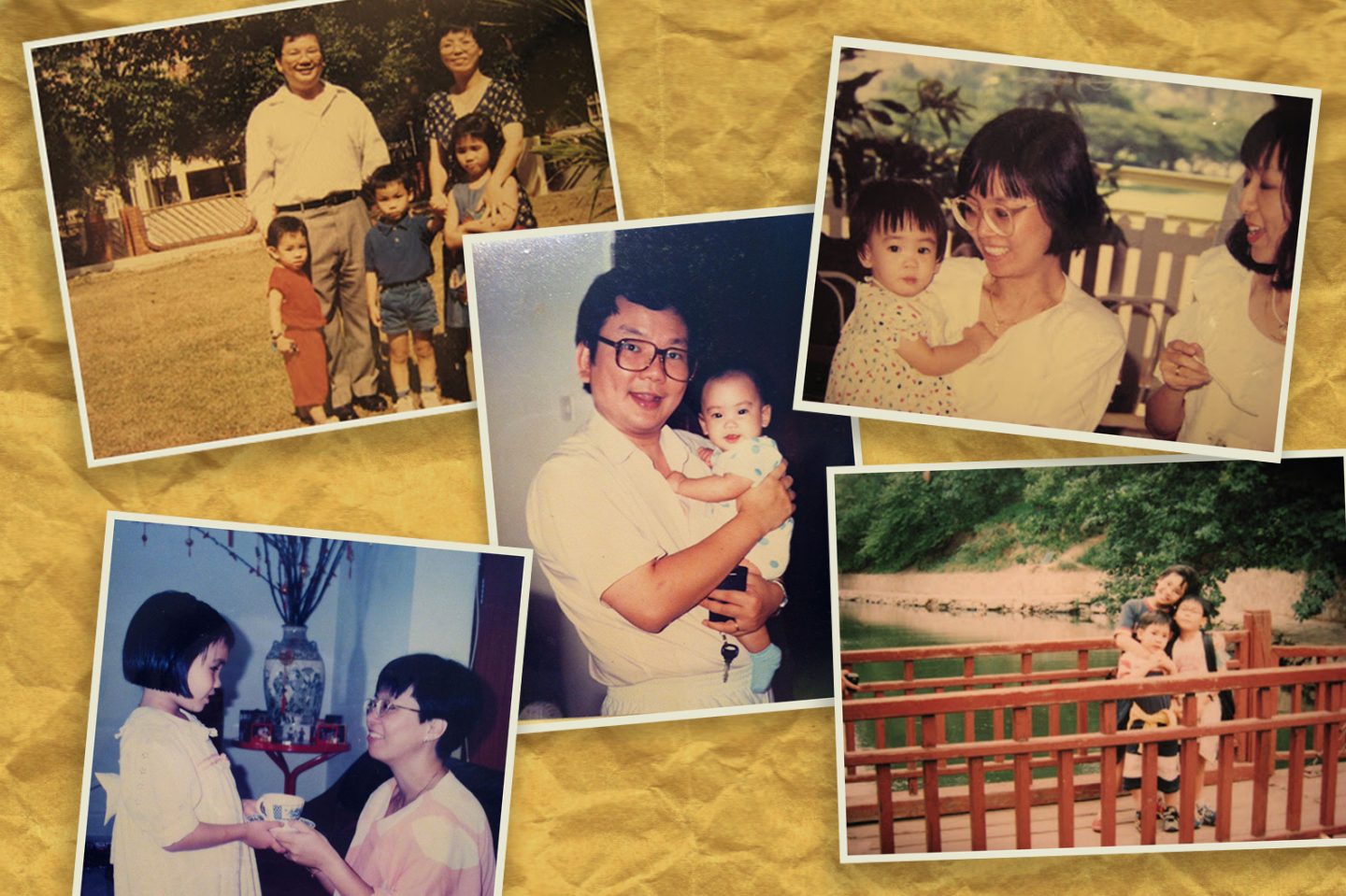You’d think it gets easier as you get older: Loving the ones who carried you into the world. The ones who gave you your name. Your first teachers in the school of life.
Maybe your relationship with your parents has never been too difficult. But for many of us, that road has been paved with tears, pain, anger and all sorts of unresolved issues – a broken trail of mountains, valleys, and everything in between. Home is where the heartbreak is.
Perhaps it’s intensified by the Singaporean culture of not moving out till we’re married. Or the Asian notion of filial piety, where our role as children requires us to not just support our parents as they age, but also to bring them honour – as opposed to disgrace – among the community with our life choices.
“Honour your father and your mother, so that you may live long in the land the Lord your God is giving you.” (Exodus 20:12)
In the Bible, honour goes beyond pride and pleasure. It is a command – not just a call. And it makes no concession for cases of not-so-great parenting, which means we are to honour our parents even if they aren’t followers of Jesus or the best examples of Christian living. We have to honour them even if they are absent or abrasive, unrelenting or unreasonable.
It seems that we’re called to do the impossible. We’ve been set up for failure.
But God being God, infinitely wise, knows better than what we can immediately see. After years of grappling with my personal struggles of faith and family, here are some things I’ve learnt about one of the very few relationships you don’t get to choose.
1. YOUR FAITH IS YOUR OWN
Our relationship with our Heavenly Father can easily get entangled with our relationship with our earthly parents – maybe more so for second-generation Christians like myself. But we need to separate the two. We need to pursue Him for ourselves. Our belief in God and His Word has to be independent of our parents’ walk with Him.
When we honour our parents, we do so because we honour God. There is no clause on whether that honour is deserved, because at the end of the day it comes down to our individual relationship with our Heavenly Father: Whether we’re allowing our earthly relationships good and bad to move us towards Christlikeness, or derail us from that trajectory.
We’re all on a journey, and we’ve all fallen short of God’s glory (Romans 3:23). God uses relationships, people in our lives, parents, to reveal to us areas of potential growth because – let’s face it – we as children of God always have changing to do.
How we respond as His children to our circumstances is fully our responsibility, not dependent on how well or badly we’re treated. God has required parental honour from everyone who professes to follow Him. It’s all part of the training towards Christlikeness. So we do it for Him. We give Him Lordship over all aspects of our lives.
2. YOUR PARENTS ARE NOT GOD
Our parents may have been given authority over us here on earth (Colossians 3:20), but our obedience to them cannot run counter to our obedience to the One who holds authority over all (Luke 14:26). They are not gods over us or the lords of our life decisions.
Because God comes first, we must weigh everything our parents desire for us to do against His call on our lives. Yes, there is still honour in disagreement. And disagreement does not always mean disobedience.
When I chose to pursue my calling in a creative industry that fell in line with my passions and inclinations, my parents – who felt that greater successes lay elsewhere – disagreed with my choice. As a God-loving, Jesus-following Christian, was choosing my way instead of theirs an act of disobedience? Could I still honour my parents if I knew deep inside that I could not give them what they wanted without denying what I felt was my calling?
It was a matter of context and communication. My life mission, my destiny is God’s domain – He gave me this life, so it is fully His. I chose the path I felt He had called me to. But I honoured my parents by communicating this decision with love and respect.
This meant being slow to speak and even slower to anger – even in heated discussions (James 1:19). This meant choosing to reason like a grown woman (1 Corinthians 13:11) instead of a child who just wanted her way. This meant needing grace, grace, and more grace, so that I could show it.
3. WE LOVE THEM BECAUSE HE FIRST LOVED THEM
It may be hard to believe in the midst of difficult familial exchanges, but God loves us all – your parents included. If He can love them with an agape love – selfless, unconditional and perfect – we can, too. In fact, we should desire to if we truly want to be like Him. All we have to do is ask. Father, give me that love you have for my father. That love you have for my mother? Pour it into my heart.
Ask for new eyes – the eyes of God – so you can see our parents the way He does and begin to understand where they’re coming from. To recognise our shared fallenness, the same desperate need for His redemption, and to find new grace to forgive grievances and arise as a minister in the household.
This might mean learning to be the first to say “Sorry, I was wrong”, and, likewise, choosing to keep no record of wrongs (1 Corinthians 13:5). It means praying for your family, your parents’ marriage and your ability to honour them well.
We weren’t given to the wrong parents or put in the wrong family. You are God’s message of love to your parents. Whether that message gets conveyed accurately is up to you.









